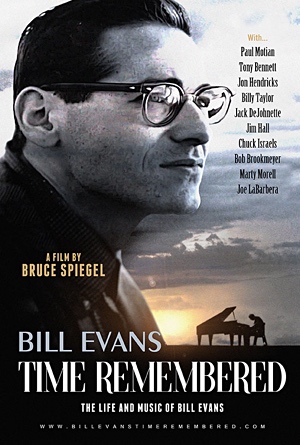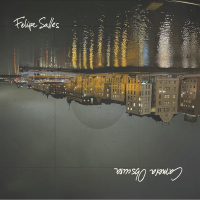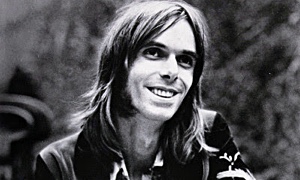Home » Jazz Articles » Film Review » Bill Evans: Time Remembered (The Life and Music of Bill Evans)
Bill Evans: Time Remembered (The Life and Music of Bill Evans)
 Bill Evans: Time Remembered (The Life and Music of Bill Evans)
Bill Evans: Time Remembered (The Life and Music of Bill Evans)A Film by Bruce Spiegel
2016
In the opening segment of Bruce Spiegel's splendid

Bill Evans
piano1929 - 1980
Eight years in the making, and with over 40 interviews of musicians, friends and family members, Spiegel's documentary is a comprehensive journey from Evans's boyhood in North Plainfield, New Jersey to his death at age 51 in 1980. We learn about his close connection with his older brother, Harry, who also studied music and was a capable pianist who ended up becoming a music teacher; his long-term relationship with Ellaine Schultz, who became his common-law wife for 12 years during some of his most prolific years in the 1960s and early 70s; and his gradual decline as the 1970s wore on, due largely to his persistent difficulties with substance abuse. Family members Pat Evans (Bill's sister-in-law) and Debby Evans (his niece) provide a good deal of the insight into Bill's personal life, giving us an opportunity to learn about the man behind the music.
But of course for fans of Evans, it's really the music that will be most important, and Spiegel doesn't disappoint in that regard. Evans's decision to join his brother Harry as a music student at Southeastern Louisiana University in the late 1940s would prove transformative in exposing him to music theory and classical composition, and in helping him to develop his own voice. Drummer

Paul Motian
drums1931 - 2011

Scott LaFaro
bass1936 - 1961

Tony Scott
clarinet1921 - 2007
All of this was before Evans's big break with

Miles Davis
trumpet1926 - 1991

Gary Peacock
bass, acoustic1935 - 2020
The subsequent trios were all accomplished in their own right, of course: bassists

Chuck Israels
bass, acousticb.1936

Marc Johnson
bassb.1953

Marty Morell
drumsb.1944

Joe La Barbera
drumsb.1948
Interviews with legendary Riverside producer

Orrin Keepnews
producer1923 - 2015

Teddy Kotick
bass1928 - 1986

Gene Lees
b.1928
Jim Hall
guitar1930 - 2013

Tony Bennett
vocals1926 - 2023

Billy Taylor
piano1921 - 2010

Bob Brookmeyer
trombone1929 - 2011
One can quibble a bit with avenues that might have been explored further in the film. For instance, the racial dynamics that emerged when Evans joined Miles's group in 1958 were perhaps covered too briefly. Evans mentions in a recorded interview in the film that "this was a very heavy black pride band," and that "Miles called me a white pianist," but beyond mentioning some of the challenges that accompanied Evans's presence on the bandstand with the group in some of the clubs they played, Spiegel moves on before those elements are fully fleshed out. And hard-core Evans enthusiasts will probably want more discussion of the nuts-and-bolts of Evans's music and the evolution of his musical concepts as he departed from conventional bebop; a passing mention of Evans's early work with

George Russell
composer / conductor1923 - 2009
For his dedication to Evans's legacy and his unmistakable love of his music, both of which are vividly demonstrated in this fine document, Spiegel is to be commended. This film is essential viewing, not only for Evans's fans but for all lovers of modern jazz.
Tags
Comments
PREVIOUS / NEXT
Support All About Jazz
 All About Jazz has been a pillar of jazz since 1995, championing it as an art form and, more importantly, supporting the musicians who make it. Our enduring commitment has made "AAJ" one of the most culturally important websites of its kind, read by hundreds of thousands of fans, musicians and industry figures every month.
All About Jazz has been a pillar of jazz since 1995, championing it as an art form and, more importantly, supporting the musicians who make it. Our enduring commitment has made "AAJ" one of the most culturally important websites of its kind, read by hundreds of thousands of fans, musicians and industry figures every month.




 Buy Now
Buy Now























